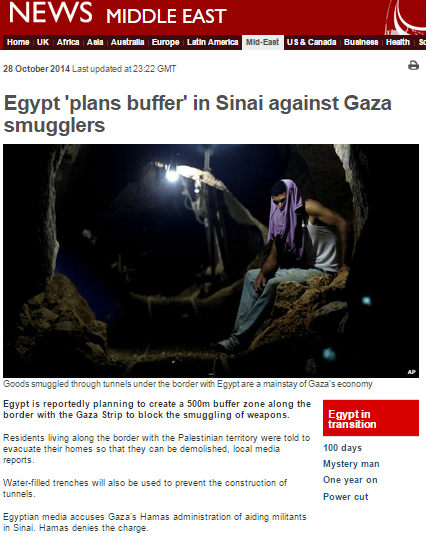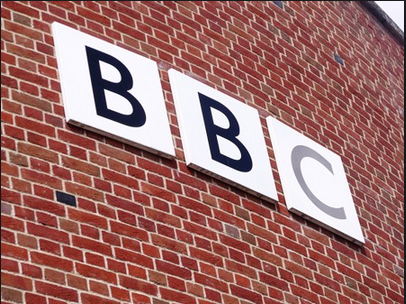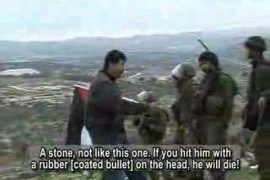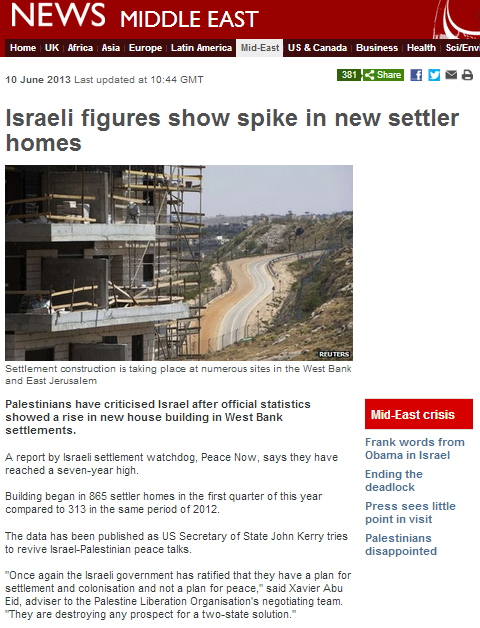On the morning of October 9th a terror attack in which two people were killed and five others were wounded took place in Jerusalem.
“The attack began as the assailant drove by police headquarters on Haim Bar-Lev Street, a main artery also served by the city’s light rail, and opened fire at a group of people, hitting one woman, police said.
He sped off toward Charles Simon Clermont-Ganneau Street and shot a woman who was in her car, critically wounding her.
He continued toward the Arab neighborhood of Sheikh Jarrah. Police officers on motorcycles from the city’s Special Patrol Unit saw the shooting and gave chase, police said.
The assailant then opened fire at the officers, who shot and “neutralized him,” police said.
During the shootout, one officer was critically wounded, while a second was lightly to moderately injured, police said.”
Some four hours after the incident took place the names of the two people killed in the attack – Levana Malihi and First Sgt Yosef Kirma – were released.
The BBC News website’s first report on the incident appeared on the Middle East page some three hours after the attack took place and following the announcement of the deaths of two of the wounded.
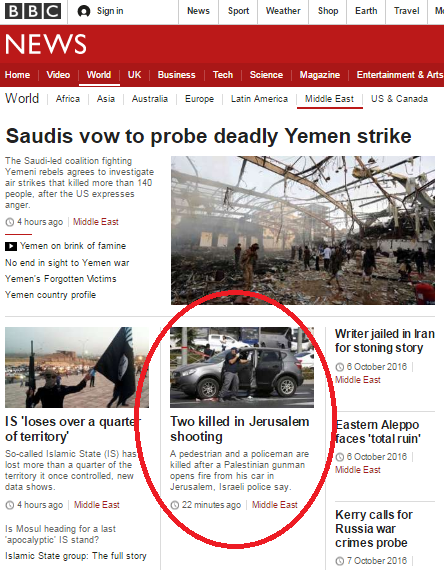
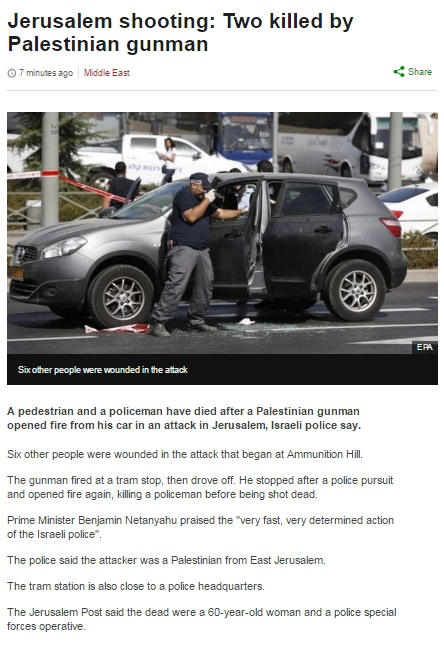
Some three hours after that – and around two hours after the names of those killed were released for publication – the article was amended.
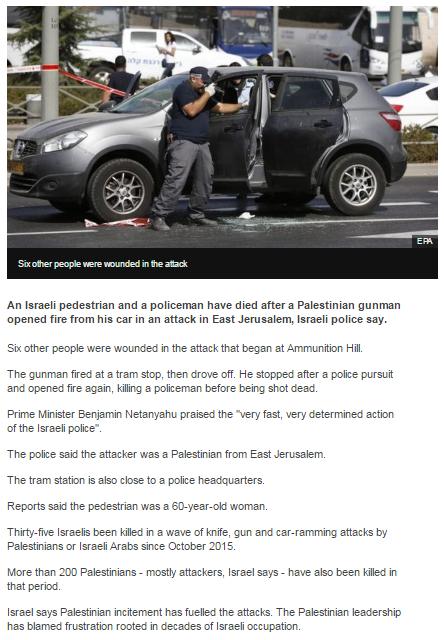
Notably, the updated report omitted much of the relevant information which was already available at the time of its publication.
1) Once again, the victims were not identified or personalised.
2) The second shooting of the woman in her car was omitted.
3) The report stated that “[t]he police said the attacker was a Palestinian from East Jerusalem” but readers were not informed that the terrorist – from Silwan – held an Israeli identification card or of his apparent links to a banned Islamist group as reported by Ha’aretz and others.
“The assailant behind Sunday’s Jerusalem shooting attack that left two dead was set to begin a four-month prison sentence for assaulting a police officer in Jerusalem’s Old City, the Palestinian Ma’an news agency reported on Sunday.
According to Palestinian sources, the assailant – a 39-year-old resident of East Jerusalem’s Silwan neighborhood whose identity remains under gag order – was linked to the Mourabitoun, an outlawed Islamist group active at the Al-Aqsa Mosque. Its members demonstrate on Temple Mount, known in Arabic as Haram al-Sharif, whenever Jews visit there.”
4) BBC audiences were not informed that Hamas claimed the terrorist as one of its members and – along with the Palestinian Islamic Jihad – praised the attack. Neither were they told of the celebrations seen on the streets of Gaza and elsewhere after the attack. Similarly, BBC audiences learned nothing of the Fatah Jerusalem branch’s call for a general strike after the incident or of the glorification of the terrorist on Fatah’s social media accounts. The BBC’s report did however continue the policy of amplifying PLO messaging on the topic of terrorism against Israelis.
“Israel says Palestinian incitement has fuelled the attacks. The Palestinian leadership has blamed frustration rooted in decades of Israeli occupation.”
5) In line with BBC editorial policy, the words ‘terror’, ‘terrorism’ or ‘terrorist’ do not appear anywhere in the BBC’s coverage of an attack in which a 60 year-old grandmother of six was gunned down in broad daylight at a city tram stop. Significantly, the morning after this report appeared the BBC did find it appropriate to use such terminology when reporting on an attack which did not take place – in Germany.
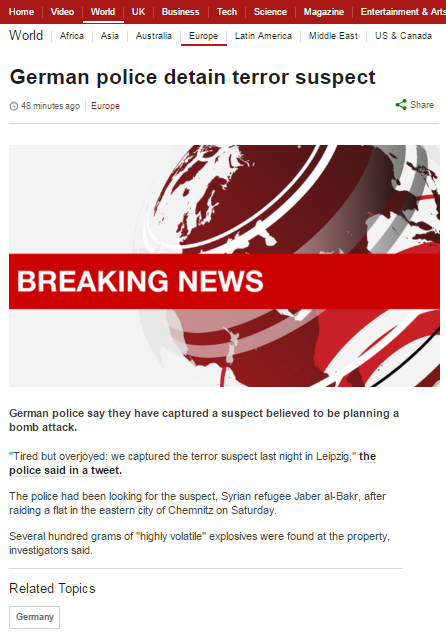
The following day – October 10th – further changes were made to the article. Over twenty-six hours after the incident had taken place the BBC noted the names of the victims and reported that Hamas had praised the attack and identified the terrorist as one of its members but the article’s additional omissions remained.
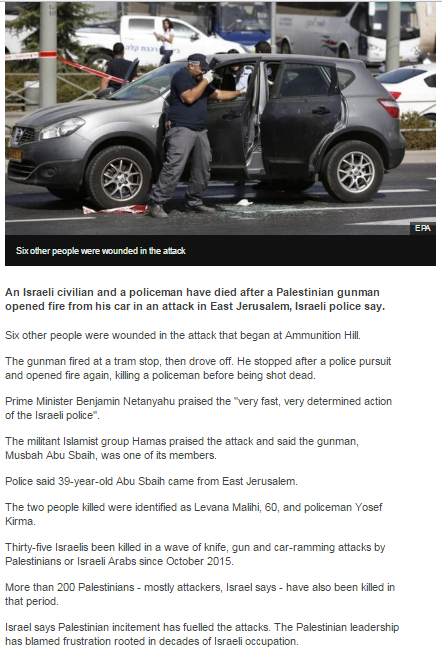
It is of course highly unlikely that members of the BBC’s audience who had read the report the previous day would have revisited it twenty or more hours later on the off-chance that it might have been updated.
The BBC’s coverage of this incident clearly fails to meet the remit of providing audiences with the full range of available information necessary for their understanding of both the specific story and its broader context. It does, however, provide yet another example of the double standards and lack of consistency at play in BBC reporting on terrorism.

